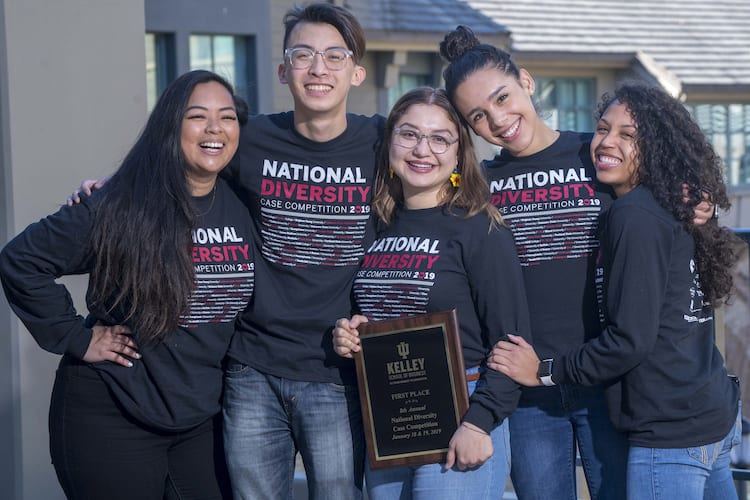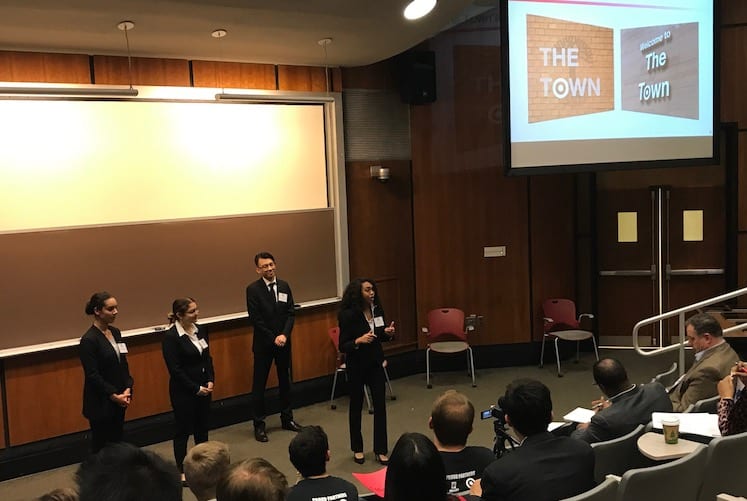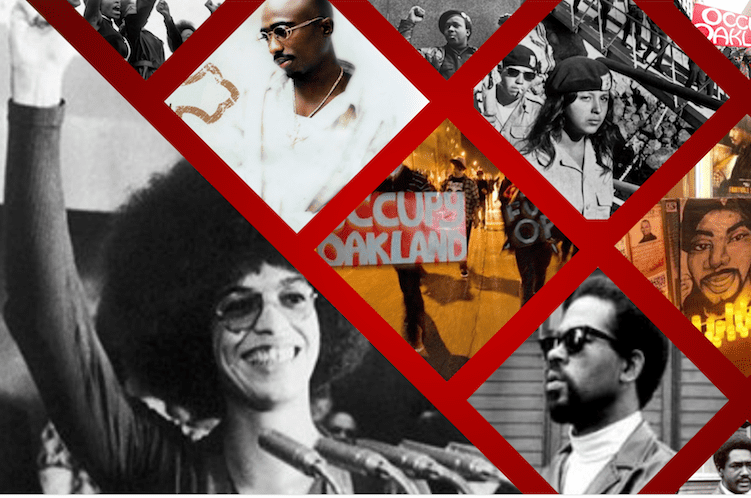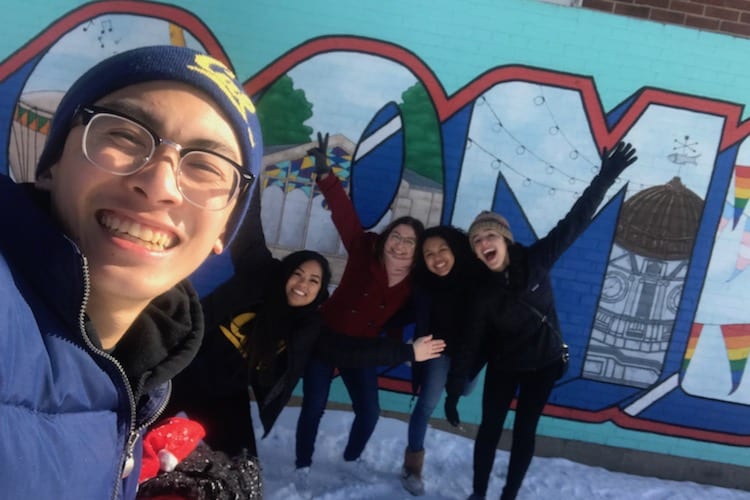
A plan to build an inclusive new small-format Target store in Oakland netted a Haas undergraduate team a first-place tie with the host school at The National Diversity Case Competition (NDCC). The 8th annual event was held at Indiana University’s Kelley School of Business Jan. 18-19.
The Team: Team captain Claudia Diaz, BS 19, Kiara Taylor, Alec Li, and Frances James, all BS 20. The team’s advisor was Mary Balingit, assistant director of admissions & outreach for the undergraduate programs, and the undergraduate lead for inclusion & diversity. Faculty coaches were Haas Lecturers Steve Etter and Krystal Thomas, along with Erika Walker, assistant dean of the undergraduate program.
The Field: 168 undergraduates from 42 business schools around the country, competing for a total of $20,000 in prize money.
The Challenge: Choose a neighborhood and develop a strategy for the location, design, and merchandising of a new small-format Target store, as well as address ways to help the community integrate Target into their neighborhood. Target asked the students to consider community engagement, marketing, the supply chain, delivery options, finance & logistics, and diversity & inclusion.
The team’s plan: To build a small-format Target in downtown Oakland, called The Town’s Target, with a locally-owned café to be operated by a local food entrepreneur. The cafe would double as an incubator—a residency program that would allow that local entrepreneur to build clientele and develop an exit strategy to launch a business at the end of two years, at which time a new entrepreneur would take over the café. The café would include a mural painted by an Oakland artist collective, and a community space for local social justice organizations to meet. Electronic lockers in the store would house customer’s hot lunches or purchases and be accessible to people with disabilities and farmer’s market produce would be delivered daily, along with locally sourced products, like coffee, chocolate, and apparel.

What made them winners: Storytelling, originality, and depth of content. Competition judge Zain Kaj, CFO of GE Global Supply Chain at GE Healthcare, said the team’s ideas were “creative and delivered with passion and a genuine sense of inclusion and celebrated what the weekend was all about.”
The competition provided the perfect platform for the team “to showcase how we’re living our culture out loud,” Walker said. “The Defining Leadership Principles were in full effect and I’m so proud of the team for its authentic approach and positive energy. It’s a well deserved win!”
James opened the team’s 15-minute presentation in a unique way—with spoken words.
Oakland
The land of culture, the home to change
The Brown Berets carried the torch for Chicano freedom
Black Liberation ignited
The voices of Malcolm X and Angela Davis heard loud and clear—they called for more
Oscar Grant killed, a flawed police force at fault
Black Lives Matter, they yelled, Black Lives Matter!
Tupac preached about changes, America needs change
Said forgive but don’t forget, always keep your head up
All of these voices came to form the Oakland we know
But it has become so much more…

Li designed a stunning visual presentation, with collages representing Oakland’s rich history. “We hit every emotion,” he said. “We made them laugh, and made them cry.” Taylor had great command and presence in the room, Balingit said.
The secret sauce: Diaz’s slow and steady delivery of her personal story of growing up in a low-income community in South Central Los Angeles—a food desert, she said, where your choices were either “McDonalds or Jack in the Box because there were no fresh strawberries or apples.” A Haas senior and a social justice warrior, Diaz served as team captain, and “the person who had to rally everyone together,” Taylor said.
The Haas Factor: Questioning the status quo. When the students read the case they boiled it down to one word: gentrification. Then they focused on Oakland, and how gentrification has impacted the city. That led them on a tour of Oakland with Balingit, where they drove past shuttered mom and pop stores and discussed the homeless problem and how lower income people were priced out. They decided that every aspect of their case must prioritize inclusion and the needs of the community. The approach was very “Berkeley,” Balingit said, referring to the focus on social justice.

Most memorable experience from the competition: A standing ovation from the crowd. “We could not get out of that building when we were done,” Taylor said. “We were literally held back.” At that moment, James said, “we knew we had made an impact.”
The students got to bring their whole authentic selves to the competition, Balingit said. “They brought such a fresh, innovative and risky approach but still won the hearts of everyone there,” she said. And another fun outcome: they all finish each other’s sentences now—and might just be friends for life.